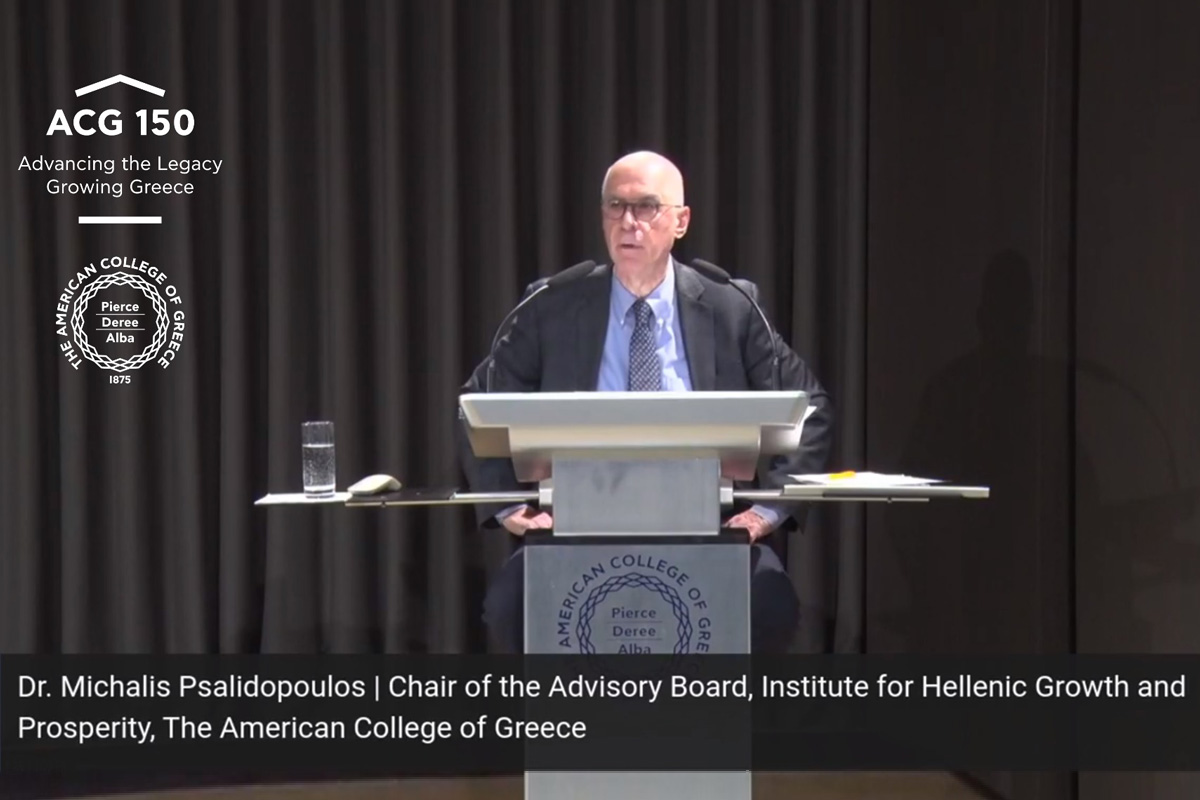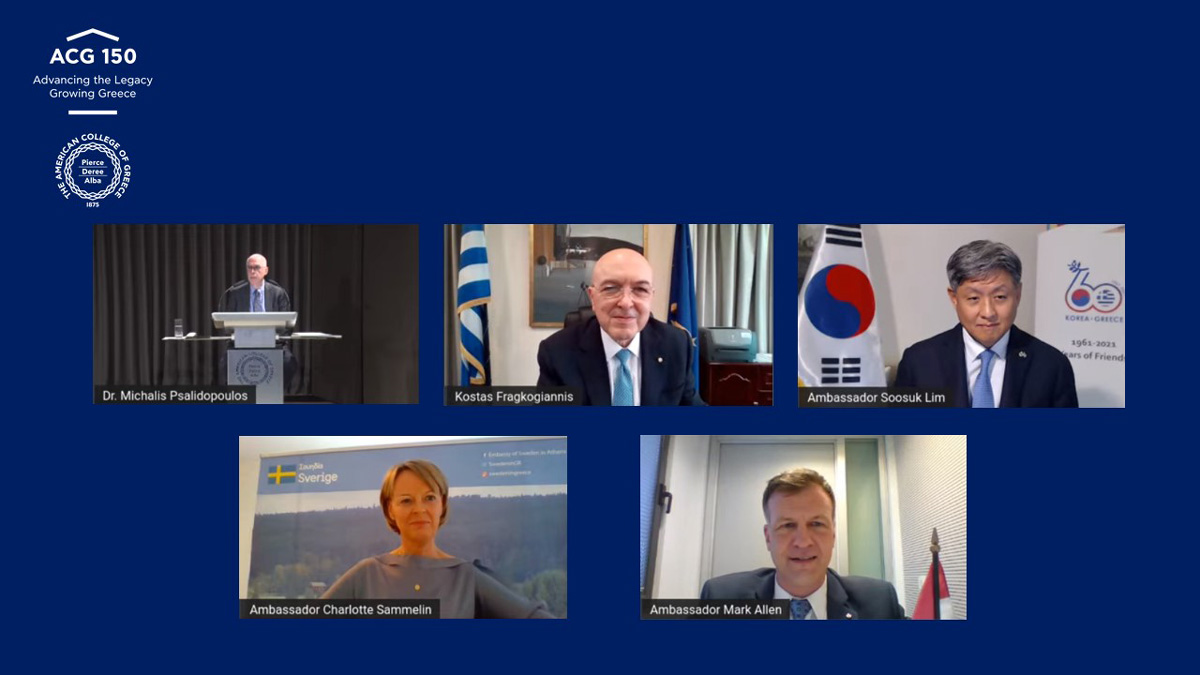
The inextricable ties between the economy, politics and diplomacy, and the role of the latter in facilitating economic growth, were at the center of the panel discussion organized by the Institute for Hellenic Growth and Prosperity of the American College of Greece (ACG), in collaboration with the ACG Institute of Global Affairs, under the title “The role of Diplomacy in Economic Development.” Held on Thursday, February 4, the panel discussion aimed at understanding the role of diplomacy in economics through specific examples gained through conversations with and between heads of mission, public sector officials, and industry. The event was part of ACG 150, a visionary strategic plan to leverage education for economic and social impact, as well as to consolidate, support and expand ACG’s activities in performing research, creating technology and fostering innovation.
The keynote speaker was Kostas Fragogiannis, Deputy Minister for Economic Diplomacy & Openness, Hellenic Ministry of Foreign Affairs, while the panel included H.E. Charlotte Sammelin, Ambassador of the Kingdom of Sweden to the Hellenic Republic, H.E. Soosuk Lim, Ambassador of the Republic of Korea to the Hellenic Republic and H.E. Mark Allen, Ambassador of Canada to the Hellenic Republic. The discussion was moderated by Dr. Michalis Psalidopoulos, Chair of the Advisory Board, Institute for Hellenic Growth and Prosperity, The American College of Greece.
Mr. Fragogiannis underscored the importance of economic diplomacy in modern Greece for addressing the numerous challenges of today’s world. The Deputy Minister summarized the government’s four main pillars of economic diplomacy: (a) To increase foreign direct investment, by approaching top-notch corporations interested in investing in the country, offering them incentives and facilitating procedures. (b) Continuous emphasis on openness. As the Deputy Minister reported, the government has already planned 60 different initiatives for the next months, which are expected to “make Greece look outwardly in an unprecedented fashion.” (c) Multilateral and multilevel diplomacy, by strengthening Greece’s presence in international organizations, such as the World Trade Organization, OECD, NATO and the EU. (d) Participation in ambitious projects, such as e-Astypalaia, the first green, sustainable island in the Mediterranean, or projects with giant corporations.
From their part, Charlotte Sammelin, Ambassador of Sweden, Soosuk Lim, Ambassador of the Republic of Korea and Mark Allen, Ambassador of Canada, shared their unique perspectives on economic diplomacy, covering vantage points from Europe, Asia, and North America. Companies from Sweden, Korea and Canada have a significant presence in key economic sectors in Greece, such as technology, shipping, mining, automotive, and financial services, and governments play a dynamic role in supporting and promoting the activities of companies under their flag.
You may watch the full panel discussion here.

